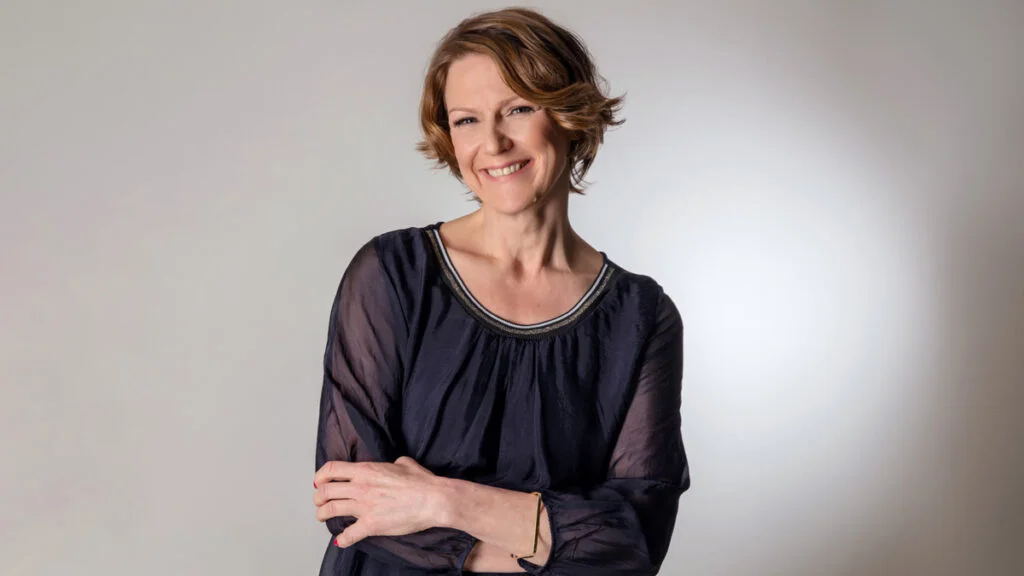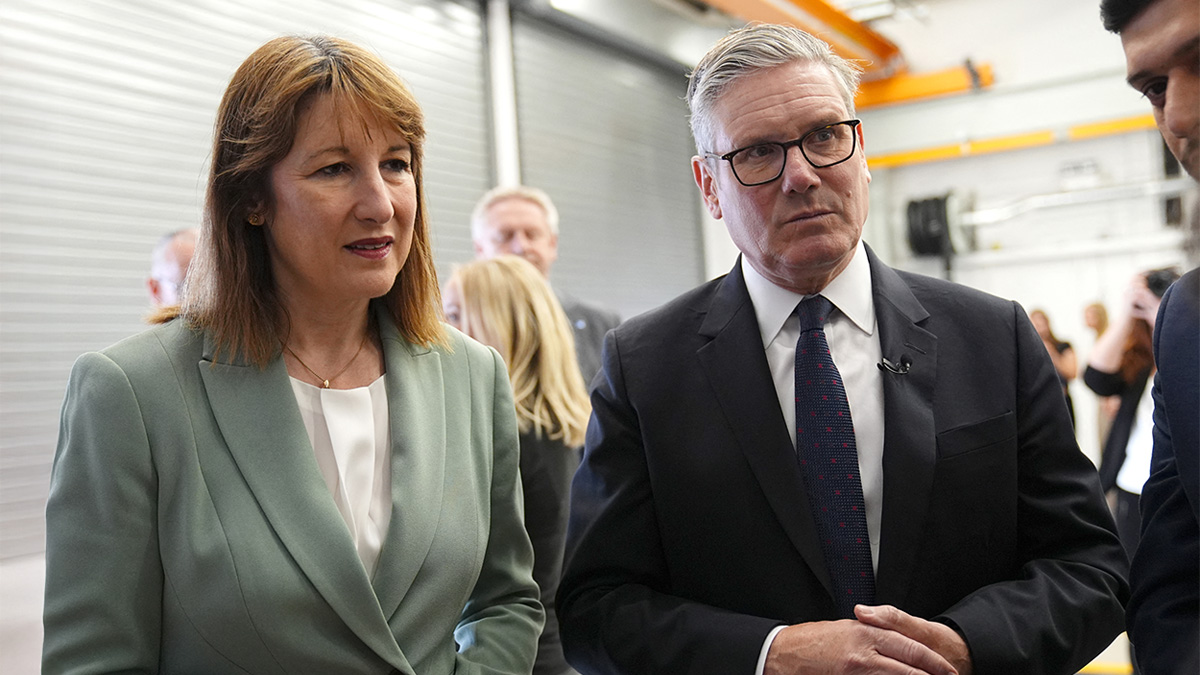
Lauren Chiren, 55 from Bristol, suffered from debilitating anxiety, and extreme dizziness and couldn’t even remember the names of her colleagues while going through menopause.
It drastically affected her work in a senior role in financial services. "In the end, I was absolutely terrified that I had early onset dementia," she says. "At the age of 44, I left my job for fear of being seen as weak, vulnerable or a failure.”
From Baroness Karren Brady to Liz Earle in the UK and Michelle Obama to Gwyneth Paltrow in the US, menopause is sparking conversation on both sides of the Atlantic. A few years ago, it would only have amounted to hushed whispers. But there’s a revolution in the world of women’s health and as it affects businesses of all sizes, leaders need to take it into consideration.
While Chiren and other menopausal women are the fastest-growing demographic of workers in the country, recent data from the CIPD and Simplyhealth Health and Wellbeing at Work report shows that only 25 per cent of employers have a menopause policy and just 9 per cent of menopausal women work for companies offering leave for it.
Women have been experiencing menopause, a term coined by physician Charles Pierre Louis de Gardanne in 1821 since forever, but this fact of life has only just become part of the workplace agenda. Recent legislation from the Equality and Human Rights Commission ensures that employers make "reasonable adjustments" for menopausal women.
Off the back of her experience, Chiren founded WomenofaCertainStage, a company that supports employers, and has worked with companies like Amazon, Lloyds TSB, and Nike on menopause awareness initiatives.

What can medium-sized companies do to create a menopause-supportive workplace? Chiren recommends “normalising conversations” through annual awareness sessions, offering flexible working arrangements and private rest areas.
“By embedding these new practices, employers not only support their employees through menopause but also enhance overall workplace wellbeing,” she says.
Mary Beighton, director of people and culture at car finance marketplace Zuto, recommends that “businesses of all sizes” should provide a supportive working environment and “having a menopause policy is part of that.”
Begin by signing the Menopause Workplace Pledge to make sure everyone going through menopause is supported. Zuto also offers paid absence, virtual GP access, and a support forum for menopausal women. Measuring effectiveness is crucial, using KPIs like feedback, engagement rates, and behaviour patterns.
The Unite Trade Union survey of 11,000 union representatives reveals that 83 per cent of menopausal women lack organisational support. Addressing menopause policies is crucial for gender equality and employee well-being regardless of company size, but in recent years larger businesses have made progress.
For example, recognising this as a “workplace issue”, the Co-op adopted menopause policies to help recruit and retain female employees back in 2019, updating them to include perimenopause (the time around menopause when the body begins to change) in 2022.
Making a convincing case for backing menopausal women in the workplace, regardless of size, Nick Speight, director of culture & colleague experience director at Co-op, reveals that one-third of the female population is experiencing menopause at any one time and one in four will have considered leaving their jobs as a result.
In a bid to battle these numbers, Co-op hosts monthly colleague coffee mornings, providing a safe space for sharing experiences.
“A policy is a good place to start,” according to Speight, “but needs to be supported by great people managers who feel equipped to have supportive conversations.”
Recognising that menopausal symptoms have a huge impact at work, the head of responsible business at Osborne Clarke, Kate Millar, credits access to specialist knowledge, flexibility, and support to reduce stress and allow employees to thrive in their roles.
“It’s important to us that we create an environment where people feel they belong, are happy and healthy," she says, "and therefore able to achieve great things for their careers, our clients and our business.”

The Co-op and Osborne Clarke are among the top 13 companies recognised by Fetifa, the UK's leading fertility benefits provider, for offering excellent menopause benefits.
Financial services company, The Phoenix Group, earned the Menopause Friendly accreditation from Henpicked: Menopause In The Workplace, showcasing their effective support in culture, policies, training, engagement, facilities, and evaluation for menopause.
CEO Andy Briggs is also the UK Government’s Business Champion for the Ageing Society and Older Workers, and is deeply passionate about this topic, benefiting the 12.5 per cent of the 6,800-person team who are female and aged 45 to 54 in the company.
Reiterating the hushed nature of menopause Briggs says that “unlike pregnancy or maternity, menopause is generally not provided for in workplace cultures, policies, and training.”
For his part, offering internal support systems for menopause, as well as regular meet-ups for open discussions, the Phoenix Group is walking the walk.
For now, these larger companies are an anomaly, but medium-sized businesses can, and must, replicate this success by fostering open dialogue about menopause and identifying workplace adjustments to support team members. Otherwise, companies risk facing legal repercussions.
Sarah Tahamtani, the head of employment at national law firm Clarion, cites the recent case of Maxine Lynskey, who successfully won against insurance company Direct Line. Lynskey sued the insurance company for unfavourable treatment and won a £65,000 disability discrimination claim.
According to Tahamtani, this is a significant turning point, not only for women but also for employers wondering what steps they need to take around menopause in the workplace.
Noting that policies are essential, additional support like “feedback sessions, peer-to-peer networks and tailored training for managers” are key.
The real change will come from the companies themselves. “Businesses need to be direct and pragmatic about providing menopause guidance,” says Nishma Patel Robb, president of Women in Advertising and Communications Leadership, “education on it is well overdue and it’s time for businesses to make it their (actual) business to change things.”
Related and recommended

Raising the state pension age to save billions may seem attractive to a cash-strapped government but returns from earlier rises are dwindling

Roc Nation Sports International has a bold playbook for spotting and seizing global opportunities: be fearless and be comfortable being uncomfortable

‘Never here Keir’ and a chancellor now seen as a political liability face a tough sell as a brutal fiscal reality looms over the next Budget

Edwin Brenninkmeyer, who is a qualified pilot as well as being a CEO in the aviation industry, shares tips from the cockpit

